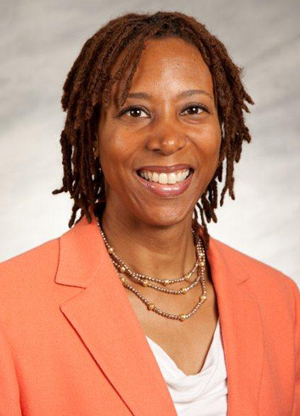
Bridal registries might be efficient — sparing the gift-giver from hours of shopping and the recipient from having to return unwanted items. But that convenience may come at a cost: Where once the mom held great sway over selecting the intimate items that shaped the new household, now Target, Macy’s and other retailers have taken over that role.
“Decades ago, the main role of the mother of the bride was creating the new home for the union of two families,” says Tonya Williams Bradford, assistant professor of marketing at the University of Notre Dame. “By turning to bridal registries, we’ve outsourced to the marketplace the sacred traditions of planning and outfitting a new family space.”
“For the retailer, it certainly has increased the revenue,” Bradford says. “And for the bride and groom, there is a broader net for who can participate, because all that is necessary is to communicate the registry website to potential gift-givers.”
In her ethnographic study “Orchestrating Rituals through Retailers: An Examination of Gift Registry” (with Notre Dame Marketing Chair John Sherry), recently published in the Journal of Retailing, Bradford examines gift registries as part of a larger set of wedding rituals, and the implications of retailers playing a central role.
Weddings are not only the union of brides and grooms in matrimony and the creation of new family units, but also a lucrative industry. The research shows that in 2010 an estimated $19 billion in gifts were purchased from registries by invited guests, making wedding industry revenues second only to those of Christmas.
And the cost lies in more than the price tag.
“Roles formerly held by parents and grandparents, we as consumers now outsource,” Bradford says, “and we’re happy to do it.”
The study reveals a number of findings about shifting the once very personal ritual of gift-giving to existing squarely within the marketplace.
“There is stiff competition among retailers to be the gift registry destination,” Bradford says, “but registries also have changed our social fabric. The notion of gift-giving used to hold much more sentimental value. Now, everything is pretty much purchased, and, sadly, many people don’t put a lot of thought into customizing those purchases.”
The study considers how gift registries in general have changed the act of gift giving, as well as family traditions associated with various occasions, from welcoming a new baby to sending a teen to college.
“We used to make beautiful gifts to celebrate the birth of a new baby,” Bradford says. “Friends and family would crochet blankets and knit hats and booties. Now we simply shop a registry at Babies R Us.”
There are ways to preserve a slice of lost traditions, Bradford says.
“For gift-givers, find ways to customize the gift you select from the registry — make it personal,” she says. “For gift recipients, make receipt of the gift a ceremonious occasion. Don’t just pick up the package from the porch. Be prompt and personalize your expression of gratitude, ideally on personalized stationary. Describe for the gift giver in detail how you intend to use the gift.”
Contact: Tonya Williams Bradford, 574-631-8674, twbradford@nd.edu